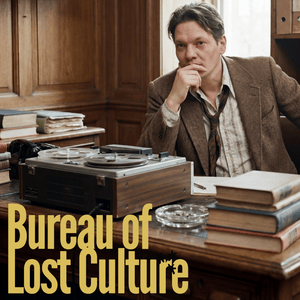Over the last century, the word Shaman has been embraced by artists, hippies, psychonauts and spiritual rebels.
In the 1960s and 70s, shamanism had become a kind of countercultural shorthand for altered states, secret, magical knowledge, and ways of seeing outside rationalism, capitalism, and institutional power.
Shamans appeared in underground books, on psychedelic record sleeves, in communes and consciousness-raising circles. Writers like Carlos Castaneda blurred the line between ethnography and spiritual fiction. Psychedelics were framed as modern shamanic initiation rites.
But as shamanism was absorbed into Western counterculture, the messy realities of the original shamanic cultures - land, lineage, service to the community, and sometimes danger - were replaced with personal visions, journeys and individual transformation.
Our guest today is social anthropologist Max Carocci whose work looks at how this happened. His latest book, Shamans: The Visual Culture, is an incredible portrait of the original shamanic worlds with an eclectic array of the sacred objects, tools, clothing and images shamans have made, along with the way they been photographed, filmed, and mythologised.
Max is especially interested in how these images have turned the shaman into a symbolic figure — part spiritual rebel, part cypher for Western longing — while the original shamans continue to live under pressure from colonialism, repression and environmental loss.
#counterculture, #shamanism, #shaman, #tuvan, #galba, #newage, #spiritualisn, #magic, #ancestor


